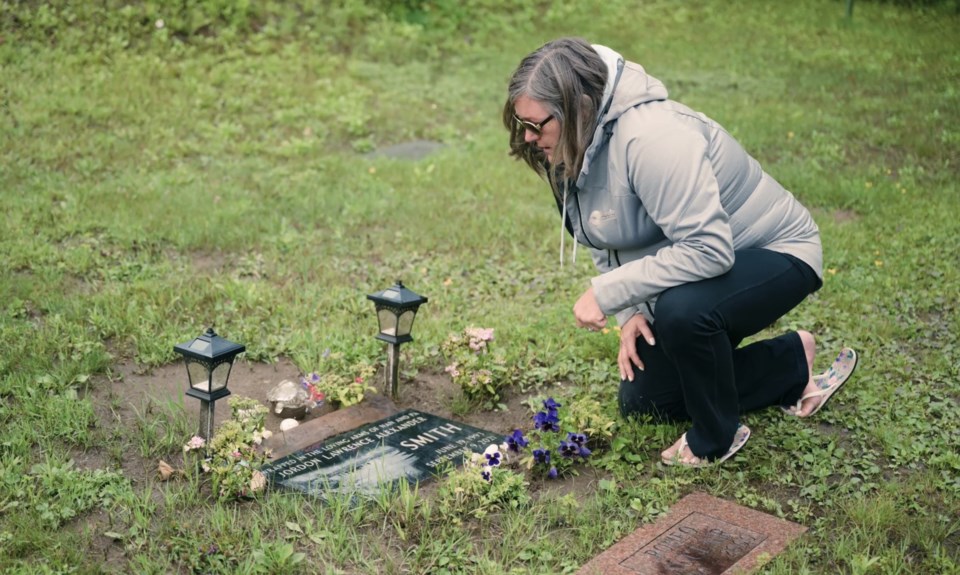THUNDER BAY — It's an issue that only continues to grow in the region, and one documentary filmmaker felt driven to share the stories of people affected by the opioid crisis and the mental health concerns that come with addictions.
A Sobering Story focuses on telling the stories of people who have been directly affected by opioids, speaking to doctors who deal directly with individuals who are struggling with their addictions, as well as other agencies who are doing what they can to help manage an overcrowded and underfunded system.
It was after reading yet another tragic news story in November 2021 about a young woman who relapsed on her sobriety and died from an overdose that left a niggling feeling with local filmmaker Ryan La Via to want to do something, but he didn't know what.
"I thought, enough is enough because there was a lot of media attention towards the opioid mental health epidemic, but nothing was really happening. So I thought a story from first-person accounts might help move the needle a little bit and, mostly, get the conversation started."
Donning many hats, La Via directed, co-produced and co-wrote A Sobering Story with his film partner Ryan Hill.
He knew to trust his gut when it came to the next subject line of a documentary, and since La Via was very green on the subject of opioids and addictions, he had his work set out for him.
After coming up with an initial contact list, both La Via and Hill soon had an abundance of people willing to talk to them to get the word out that "the problem in Thunder Bay was only getting worse."
The director said it was difficult to get people willing to talk at the start of making the film. "[Having] trust and access is everything.
La Via said it's difficult to make a documentary "if you don't have individuals' trust, if you don't have access to their stories, or agencies letting us in to let us know how serious the problem is, or doctors who are professionals in the field, the trust and the access that we were given I have not experienced ever."
Once word of mouth got around that local filmmakers wanted people's stories relating to drug addiction, La Via and Hill were inundated with requests to conduct interviews.
With over 60 hours of footage and having completed over 50 on-camera interviews, the filmmakers had their work cut out for them.
"It was a daunting task," La Via said about editing the movie. "It was such a hard experience at times hearing these stories."
The first cut of the film was over two and a half hours. By the time all the edits and cuts were made, it had a run time of 97 minutes.
"There were a lot of sleepless nights by me worried about what the main subjects would feel, how they would feel the film turned out because they don't get to see it before anyone else, quite frankly."
It was after a private showing in December 2023 that La Via and Hill felt relief as the main subjects of the film and production members gave their approval for the final version.
The movie has been entered into several film festivals, including North of Superior Film Association, which hosted screenings at SilverCity on Wednesday.
While the two screenings were packed, La Via said there will be additional chances to see the film in May with details on the movie's website.
"If we just change one person's mind, that would be a win," said La Via.
"The stigma [of addictions] was a big important theme that we tackled in this project - it is important to note that addiction has no boundaries. It doesn't matter how rich or poor you are or your social status. It is literally everywhere.
"I should say that first and foremost, that's one thing we learned as well is that it is just like diabetes, just like any other. It really is a disease that alters the brain.
"We have some educational pieces in there from well-educated doctors who prove that as fact."
La Via said they didn't make the movie to be shown to only a small segment of the population.
"We need this film to get out there and to be seen by as many people as possible. I think that's the way it could maybe help elicit some change," he said.
La Via said that come 2025, efforts will be made to make the film accessible online to those who want to watch it once the festival season is over.
Another notable fact about the film is that almost the entire production team was based in Thunder Bay, with only a small amount of work sourced to a former Thunder Bay resident who now lives in Toronto.
